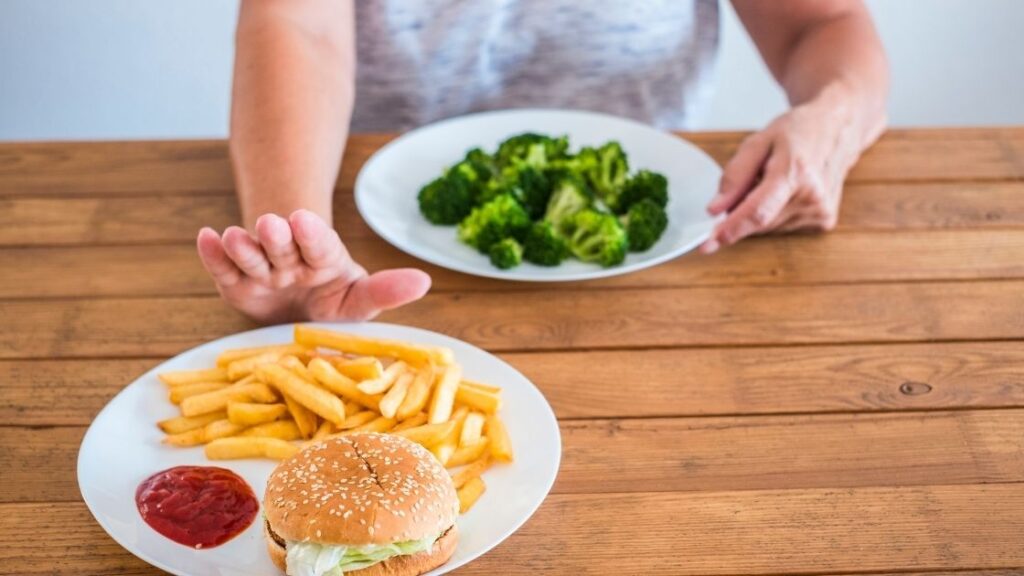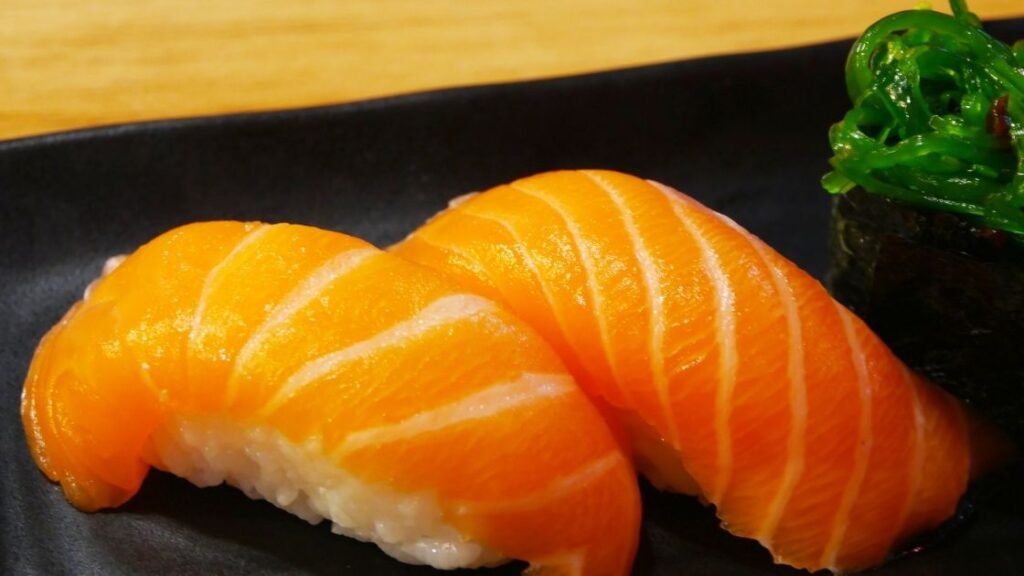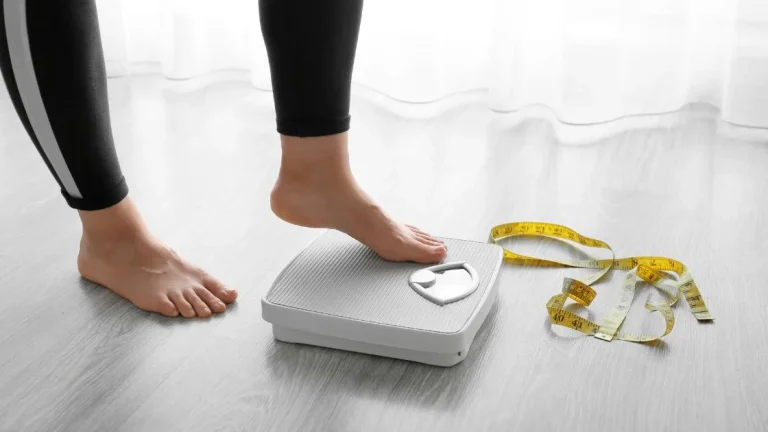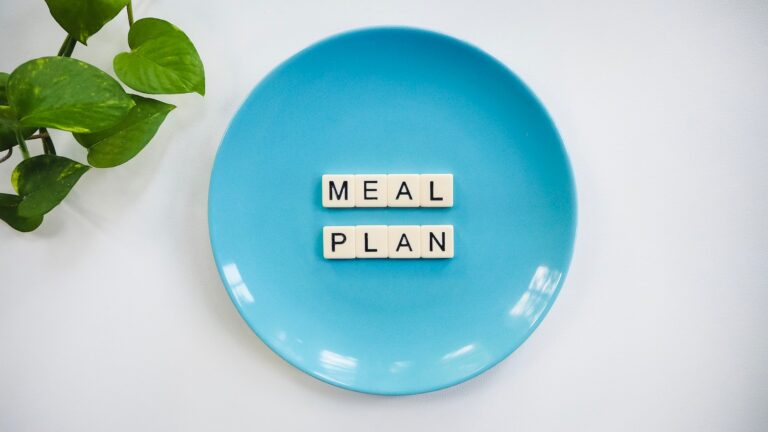It’s a topic that everyone seems to have an opinion on – how to lose weight. Unfortunately, there’s no (practical) weight loss pill or safe weight loss surgery to magically make all that belly fat disappear for good. A commitment to healthy living is the only long-term, sustainable weight loss option.
If you’re trying and trying to lose weight – and still don’t seem to be able to get the scale to budge down (or keep it down once it’s finally there), then you might be making one of these four common mistakes people make when trying to lose weight!
Why You Are Not Losing Weight
Mistake 1: Not Eating Enough Food.
One of the most common reasons people’s diets fail is that they are quite simply just not eating enough food. When starting a new diet, people tend to lose weight fast by jumping from one extreme to another. They’ll go from eating a good, solid three meals a day (with some added snacking going on) to an extreme no fat, no sugar, no salt, no carb, no solids gluten-free 0% unsatisfactory meal plan with barely enough calories to sustain a 6 six week old baby.

Of course, you are going to want to snack. And of course, you will.
When you eat too little food, your body knows that it is starving itself – remember, we are biologically programmed to eat as much as possible, to store body fat for times of crisis. Fortunately, the days of lean winters have passed, but unfortunately, we still have this biological trigger, which drives you to eat high-calorie, high-fat foods – and lots of it.
When you suddenly reduce your calorie intake, like on a crash diet, this mechanism goes into overdrive, and you’ll start to crave all those greasy, fried foods like never before – it’s just your body trying to look out for you.
But, this is what leads diets to fail – time and time again.
So how to avoid it?
- Rather than trying to empty your tummy, fill it up with fresh, healthy produce. Healthy eating is the cornerstone of any weight loss journey. Remember, no person consuming a sensible, balanced diet filled with nutritious food like fruits and vegetables, lean proteins, healthy fats, and whole grains will need to snack on glazed donuts and candy!
- Follow your cravings! To an extent. Are you craving something sweet? It’s your body telling you it’s low on sugar! Rather than reaching for the ice cream, grab some fresh fruit. The chances are that fructose alone will affect your blood sugar and satisfy those sugar cravings. And don’t forget, if you’re not hungry enough to eat an apple, then you’re not hungry enough to eat!
- Eat every 4-5 hours. You’ll consume fewer calories in smaller portions over the day. This will keep your tummy satisfied, and you will be less likely to devour the entire pantry waiting till lunch.
- Set a healthy weight loss goal. Successful weight loss takes time. Don’t expect you are going to lose all that belly fat overnight. Rapid weight loss is unhealthy, unsustainable, and often leads to further weight gain in the long run.
Mistake 2: Not Working out Properly.
Hit a weight-loss slump? Exercising correctly is so important as it is fat burning, helps you build muscle mass, and increases your overall energy level – all things will help you burn even more calories! If you are exercising and exercising but still not losing weight – it may be time to examine your routine. If you are following the same workout plan as always, chances are you’ve long outgrown it, and your body isn’t getting the same benefits as you used to. Try increasing the intensity or the length of your workouts. Most health experts recommend at least 150 minutes of moderate-level physical activity a week, primarily if you are focusing on weight reduction.

A personal trainer is great for this as they can tailor a workout plan just for you and adapt it as needed. However, if you don’t have the time, energy, or money for professional guidance – don’t worry. You can still follow a great exercise plan by yourself. Just remember, there’s a reason why they call it a workout.
During moderate level physical activity:
- Your heart rate should be elevated by 50 – 60%
- You should be able to talk, but with a little more effort than usual. You shouldn’t be able to yell or sing.
So what is moderate level physical exercise anyway? Things include things like
- Playing tennis
- Power walking
- Carrying heavy groceries
- Walking upstairs
- Cycling
- Skiing
- Gardening
Just to name a few.
Mistake 3: Not Avoiding Fried Food.
We all know more or less what’s healthy, right? Apples = “good,” donuts = “bad,” that sort of thing. Everyone is aware that they shouldn’t go out and eat a bag of fried chicken when they are trying to lose weight, but did you know that there’s a tonne of so-called “healthy foods” that are fully fried and loaded with oil. Typical weight loss snacks like:
- Pita bread chips
- Diet cookies
- Granola
- Veggie chips
- Toasted nuts
These are great examples of terrible processed food, deep or shallow fried and loaded with excess calories and carbs. They also have very few health benefits. Unfortunately, many people gorge themselves on so-called “healthy foods” but then ask themselves why they are not losing weight. Remember always to check the nutritional information listed at the back of the packet, and don’t fall for the buzz words. Just because a food is “all-natural,” “low in sugar,” or “cholesterol-free” doesn’t mean it is going to help you lose weight.

Even when cooking at home, you might think that cooking your food is healthier as you can control how much oil you put into the pan – well, even just 1 tbsp of oil (enough to cover the base of an average pan) has a whopping 120 calories! It is more than enough to undo a hard day dieting, and sometimes just as much as the previous food you were planning to cook with it anyway!
Unfortunately, when it’s time to diet, it’s time to give up the frying pan. But that doesn’t mean your food can’t be tasty!
Try
- Boiling or poaching eggs instead of frying them
- Roast vegetables and meats in a non-stick oven tray or using parchment paper
- Steaming fish in a nonstick paper bag
Mistake 4: Being Afraid of Fatty Fish
While we’re on the topic of fish, many people mistake cutting fatty fish out of their diet altogether. To be clear, rich fish are tuna, salmon, sardines, trout, and mackerel, to name a few. If you are one of those people who hear words like ‘oily fish’ and run for the hills, well, you might be surprised by just how beneficial fatty fish can be in a healthy diet.

Let’s have a quick look at all the ways oily fish can help you lose weight!
- Full of protein: Fatty fish is loaded full of protein – salmon comes in at about 20g of protein per 100g serving. Eating enough protein is essential if you are trying to lose weight, as protein will fill your tummy up and keep you satisfied to dinner.
- Calorie savvy: So let’s see how many extra calories that 100g of oily fish will cost you. 450 calories? 500? You might be surprised to learn that a serve of salmon only has a whopping total of (drum roll please) 142 calories! Not as much as you thought, is it? And if you’ll remember, that’s only 22 calories more than a spoon of oil! So skip the frying pan, steam two portions of oily fish, and your calories will more or less end up the same. If you can eat all that fish, that is!
- Full of essentials: Fatty fish is a very healthy food and complements any weight loss plan. It contains essential vitamins (mainly B and Vitamin D), minerals (Selenium), and Omega-3 fatty acids. It’s also a perfect example of healthy fats. If you are trying to lose weight, it’s important not to deprive yourself of essential nutrients. Otherwise, your body will not be able to function at its optimum rate, your energy levels will drop, and you will end up feeling lethargic and weak – common diet killers. Regularly consuming fatty fish will avoid this problem and keep your weight loss journey going swimmingly!
What should I do to lose weight?
Losing weight doesn’t just happen overnight. Staying committed, educated, and motivated is the key to long term weight loss success – and weight management.
Committed
Losing weight is a marathon, not a sprint. Remember, if you lose weight quickly, you are highly likely to regain that weight just as fast! Gradual, sustainable weight loss (think 1-2 pounds a week, depending on your starting weight) is healthier and more sustainable. It’s also more likely to lead to continued weight maintenance in the long run.
Educated
Do your research! Constantly check out the nutritional information in the foods you consume. Don’t just jump on any fad or weight-loss guru. Keep yourself informed and aware of what triggers your eating habits.
Motivated
Want to know how to lose weight? Check your motivators. Studies show that those who try to lose bodyweight to increase their fitness and overall health are much more successful than those who diet purely to drop a dress size or two.
Conclusion
If your weight loss journey isn’t as effective as you hoped, then maybe you are making one of these common mistakes people make when trying to lose weight. Remember, a commitment to long-term sustainable healthy living is the only way to lose weight – and keep it off.
Consume a balanced diet, free from fried food but rich in healthy fats like oily fish and fresh produce. Exercise effectively more than all, and don’t forget to stay committed! We know losing weight doesn’t happen overnight and is a tough journey. We wish you every success in your steps towards healthy living!

Rosily Ryan is an accomplished health and fitness writer, editor, and health activist based in Sydney, Australia. With a wealth of knowledge and expertise in the health and nutrition industry, Rosily has established herself as a trusted authority in the field. She has contributed to several leading publications, including Pure Green Magazine, where her work has been widely recognized for its insightful analysis and engaging style.
Rosily’s passion for health and fitness is evident in her writing. Her extensive research and first-hand experience in the field allow her to provide valuable insights and practical advice to her readers. As an advocate for healthy living, Rosily has been actively involved in various health initiatives and campaigns that aim to raise awareness about the importance of physical and mental well-being.








